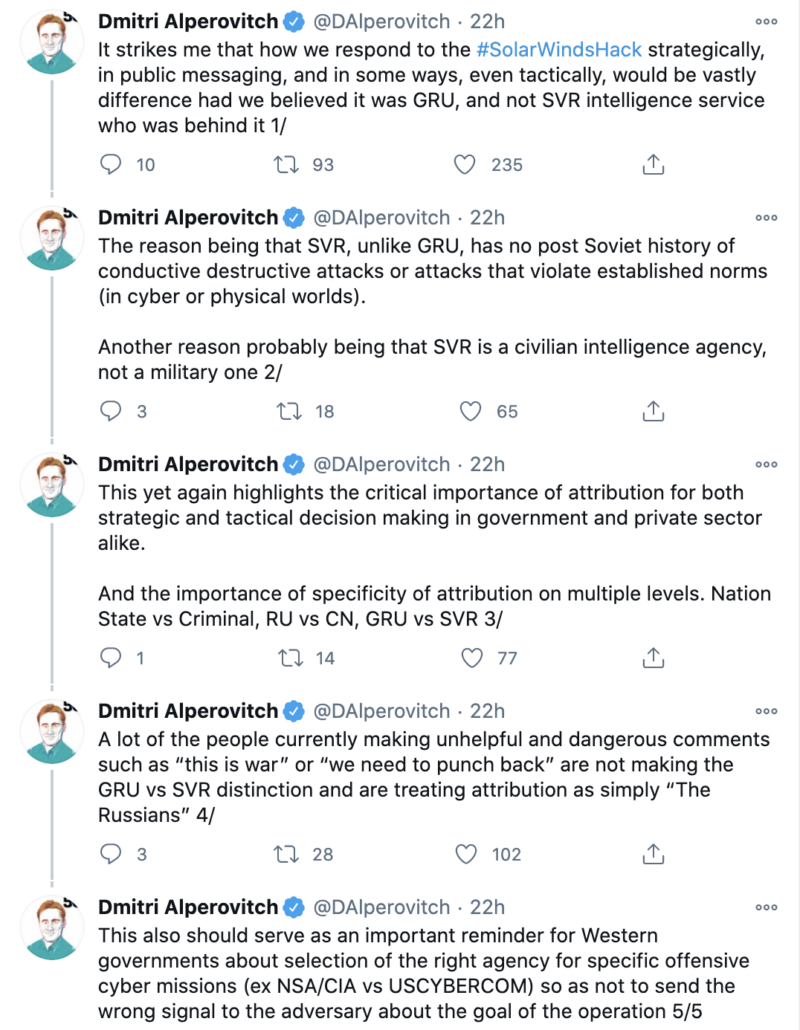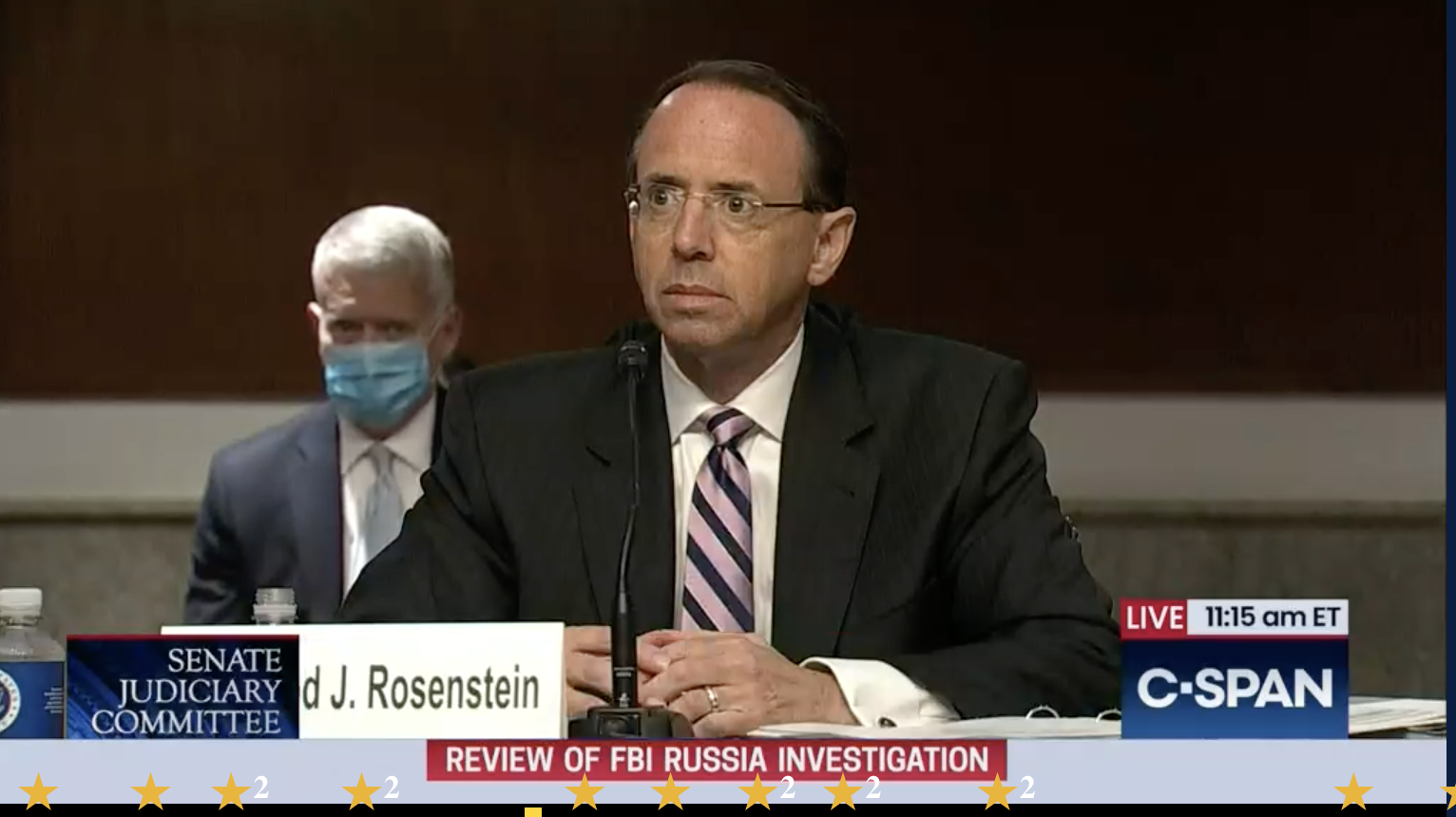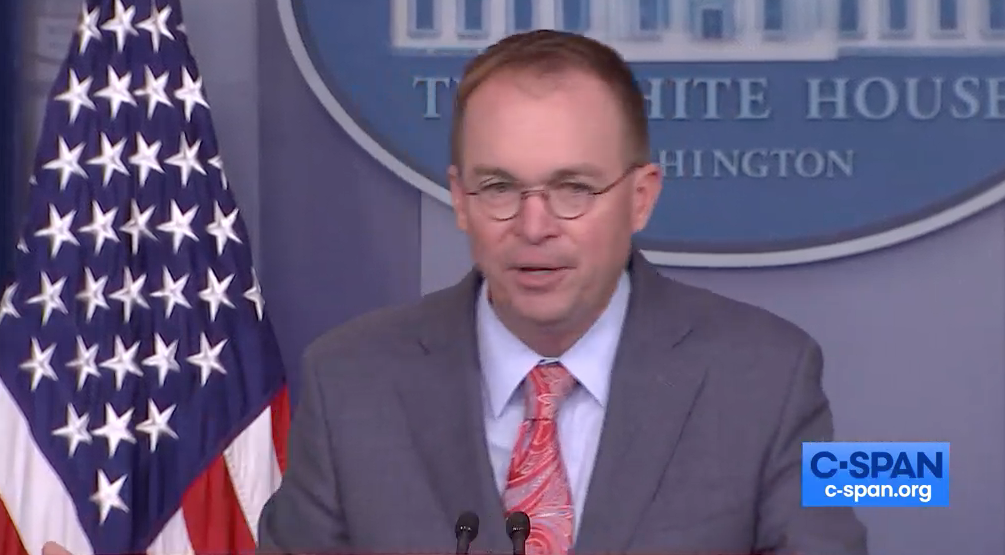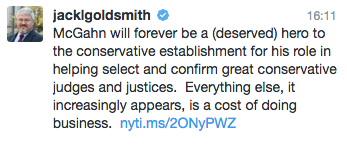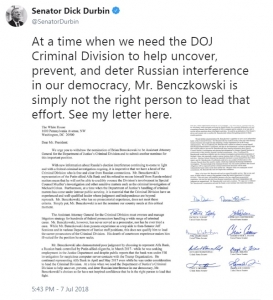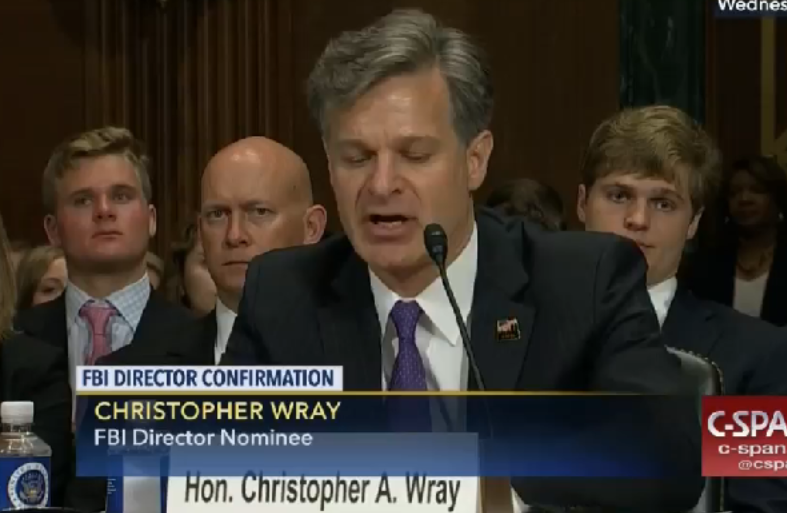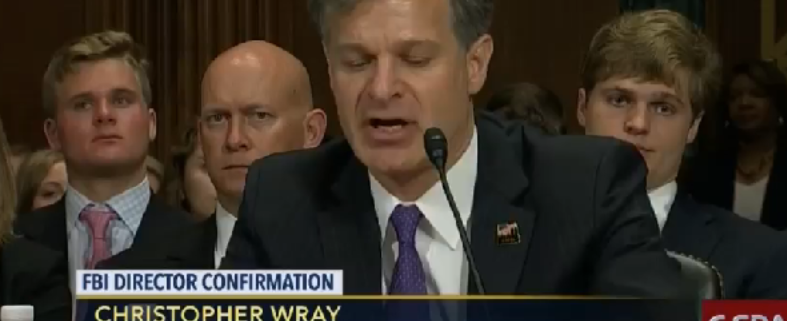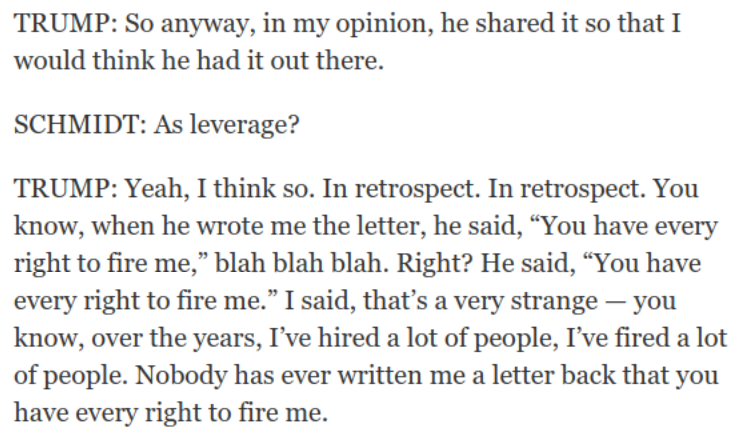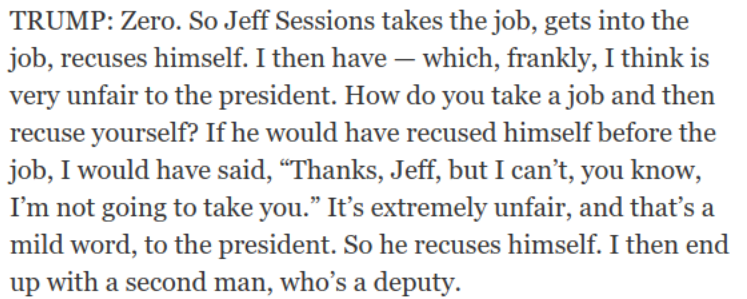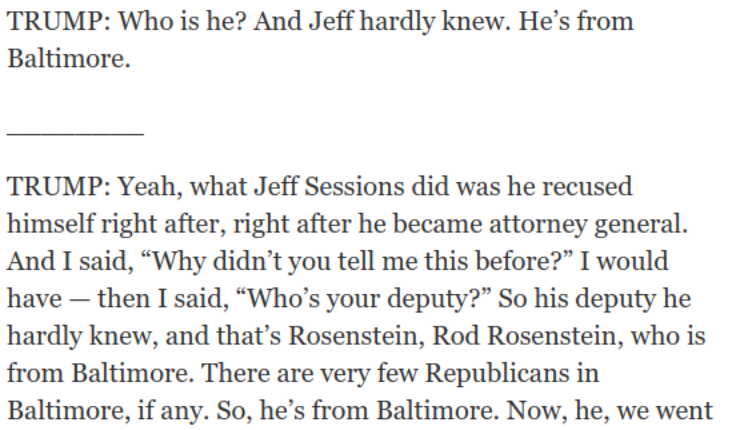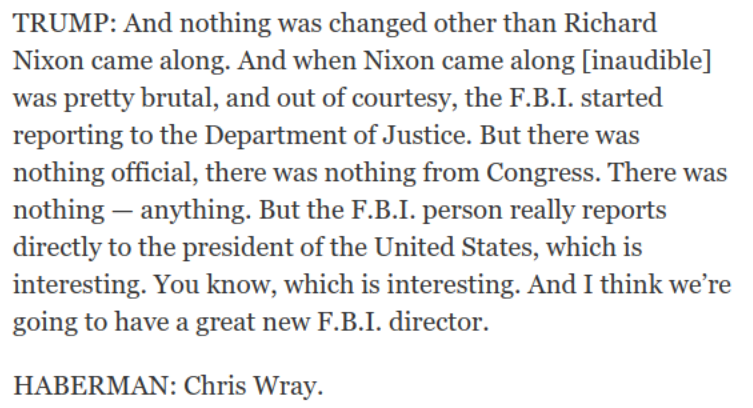Trump’s Role in a Seditious Conspiracy Won’t Go Away with an Impeachment Vote
There’s a conventional wisdom about the Donald Trump’s second impeachment trial, scheduled to start in ten days. WaPo predicts that impeachment will leave no more than a “bitter aftertaste.”
The Senate is hurtling toward an impeachment trial that will accomplish almost nothing by design and likely leave everyone with a bitter aftertaste.
Democratic voters will be furious that GOP senators refused to hold former president Donald Trump accountable for his role in encouraging supporters to march to the Capitol on Jan. 6. Republicans will be upset that congressional Democrats went through with an impeachment trial three weeks after Trump left the White House.
And independent voters, more focused on the health and economic crises fueled by the coronavirus pandemic, will wonder why Congress prioritized an impeachment process at all.
Perhaps most telling, WaPo describes Trump’s role as “encouraging” his supporters to march to the Capitol.
It’s true the word, “encouraged” appears in the article of impeachment against Trump.
He also willfully made statements that, in context, encouraged—and foreseeably resulted in—lawless action at the Capitol, such as: ‘‘if you don’t fight like hell you’re not going to have a country anymore’’. Thus incited by President Trump, members of the crowd he had addressed, in an attempt to, among other objectives, interfere with the Joint Session’s solemn constitutional duty to certify the results of the 2020 Presidential election, unlawfully breached and vandalized the Capitol, injured and killed law enforcement personnel, menaced Members of Congress, the Vice President, and Congressional personnel, and engaged in other violent, deadly, destructive, and seditious acts. [my emphasis]
But that description skips the “foreseeably result[ing]” in the interruption of the certification of the vote, the threats to Members of Congress, the deadly sedition that are also included in the article of impeachment.
Moreover, it ignores the other part of the article of impeachment, Trump’s other efforts to subvert democracy (the article describes his January 2 call to Brad Raffensberger explicitly), to say nothing of the description of Trump as a threat to national security.
President Trump’s conduct on January 6, 2021, followed his prior efforts to subvert and obstruct the certification of the results of the 2020 Presidential election.
[snip]
Wherefore, Donald John Trump, by such conduct, has demonstrated that he will remain a threat to national security, democracy, and the Constitution if allowed to remain in office, and has acted in a manner grossly incompatible with self-governance and the rule of law.
That’s a notable oversight, particularly given the — inexplicable — claim from ascendant Senate Judiciary Committee Chair Dick Durbin that we may never learn the full extent of Trump’s role in the coup attempt.
Sen. Richard J. Durbin (D-Ill.), the incoming chairman, said he would leave procedural questions up to the House managers.“I’m waiting to hear what their proposal is, but for us to suggest a trial strategy for the House managers, I don’t think that’s our job,” Durbin said.
So, instead, the Senate will rush through a trial in which the only evidence likely to be presented will be the stuff that senators themselves already lived, video clips of rioters breaking into the Capitol as senators fled through underground tunnels to their secure location.
Senators will likely not even attempt to answer the fundamental questions of every impeachment trial — what did the president know and when did he know it?
“It will be surprising to me if we ever know the answers to that,” Durbin said.
It may be true that impeachment managers will restrict themselves to the public record, though even that might include testimony from Raffensperger and evidence collected as part of the prosecution of insurrectionists. Q-Shaman Jacob Chansley even says he’d be willing to testify.
Lawyer Albert Watkins said he hasn’t spoken to any member in the Senate since announcing his offer to have Jacob Chansley testify at Trump’s trial, which is scheduled to begin the week of Feb. 8. Watkins said it’s important for senators to hear the voice of someone who was incited by Trump.
Watkins said his client was previously “horrendously smitten” by Trump but now feels let down after Trump’s refusal to grant Chansley and others who participated in the insurrection a pardon. “He felt like he was betrayed by the president,” Watkins said.
The words of Trump supporters who are accused of participating in the riot may end up being used against him in the impeachment trial. Chansley and at least four others people who are facing federal charges stemming from the riot have suggested they were taking orders from Trump.
If insurrectionists were to testify in person, the attendant security of orange jumpsuits and leg manacles might provide some sobering visuals (though COVID and real security concerns almost certainly rules that out).
But it seems foolish for any Senator to assume that the vote they’ll cast in a few weeks will make this thing go away forever.
That’s not even true for their Ukraine impeachment votes. Yesterday, Ukraine announced (much to Lev Parnas’ glee that Rudy Giuliani finally got Ukraine to announce an investigation) that it is launching a criminal probe into those — inside and outside Ukraine — who attempted to interfere in the 2020 election.
Andriy Yermak, the head of the office of Ukrainian President Volodymyr Zelenskiy, said on January 28 that Ukraine would do everything in its power to bring to justice forces within the country and outside it who attempted to damage relations between Ukraine and the United States.
“The State Bureau of Investigation has opened a criminal case,” Yermak was quoted as saying in an interview to the Ukrainian news outlet NV that was posted on the presidential website.
“The investigation is under way, and we are waiting for its results. The investigation must answer a lot of questions,” Yermak added.
Without anyone in the United States lifting a finger, then, Ukraine may provide damning new evidence about Trump’s attempt to coerce assistance on his “perfect phone call” with Volodymyr Zelensky that will make GOP negligence during the last impeachment more damning.
And in the case of the January 6 insurrection, DOJ has already mapped out a conspiracy charge that Trump could easily be charged under as well.
PURPOSE OF THE CONSPIRACY
18. The purpose of the conspiracy was to stop, delay, and hinder Congress’s certification of the Electoral College vote.
MANNER AND MEANS
19. CALDWELL, CROWL, and WATKINS, with others known and unknown, carried out the conspiracy through the following manner and means, among others, by:
a. Agreeing to participate in and taking steps to plan an operation to interfere with the official Congressional proceeding on January 6, 2021 (the “January 6 operation”);
b. Using social media, text messaging, and messaging applications to send incendiary messages aimed at recruiting as large a following as possible to go to Washington, D.C., to support the January 6 operation;
Meanwhile, Acting DC US Attorney Michael Sherwin has repeatedly refused to rule out incitement charges. Indeed, I’ve argued that DOJ almost certainly will need to incorporate at least Mike Flynn, if not Trump himself, in their description of the crimes of January 6, if only to distinguish the events of that day from other protected First Amendment activity — and at least some prosecutors in DC closer to the overall investigation seem to be doing that.
There’s no guarantee that Merrick Garland’s DOJ will have the courage to pursue Trump’s role in this (though thus far, Bill Barr appointee Michael Sherwin has not shied from such an investigation, and if he oversaw such a decision it would mitigate the political blowback). There’s no sign, yet, that DOJ has identified how the coup attempt tied into Rudy’s attempts to delay the certification.
But no Senator serving as juror in this impeachment should assume the investigation won’t, inevitably, disclose the machinations that tied Trump’s efforts to stay in office to the death and destruction on January 6. Indeed, there’s no guarantee that the actions of key jurors — like Josh Hawley and Ted Cruz for inciting the mob, Tommy Tuberville for his direct coordination with Rudy, and Lindsey Graham for his own efforts to throw out votes in Georgia and his meeting with accused insurrectionist Joe Biggs — won’t ultimately be incorporated into the larger conspiracy.
And so while it may be easy for lazy political journalism to spout conventional wisdom about everyone wanting to move on, this time around it is as likely as not that the votes cast next month will age poorly as the investigation into how Trump’s action ties to the death and destruction continues.



